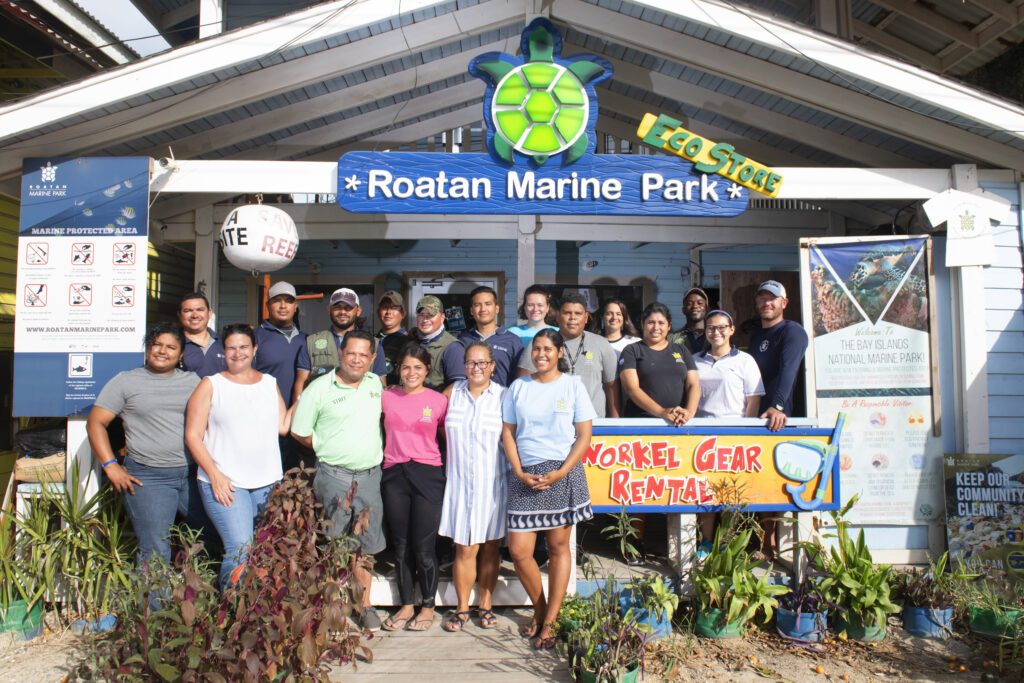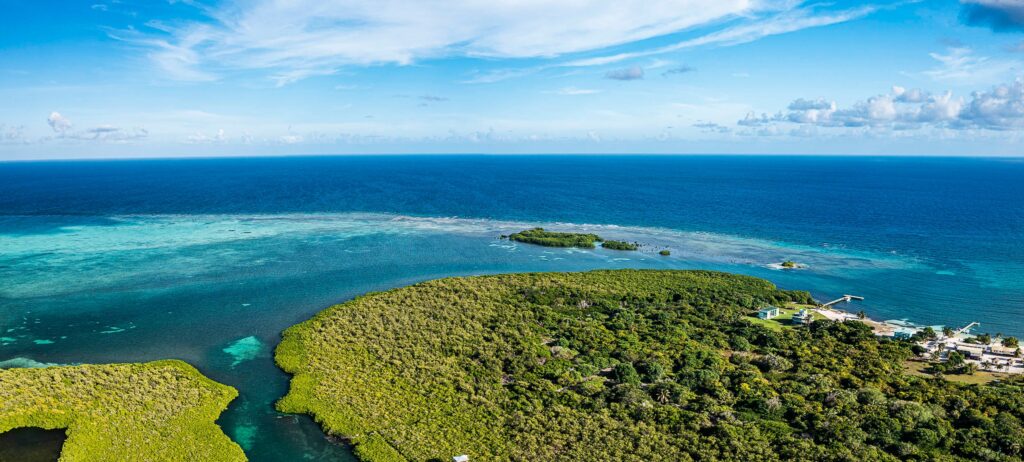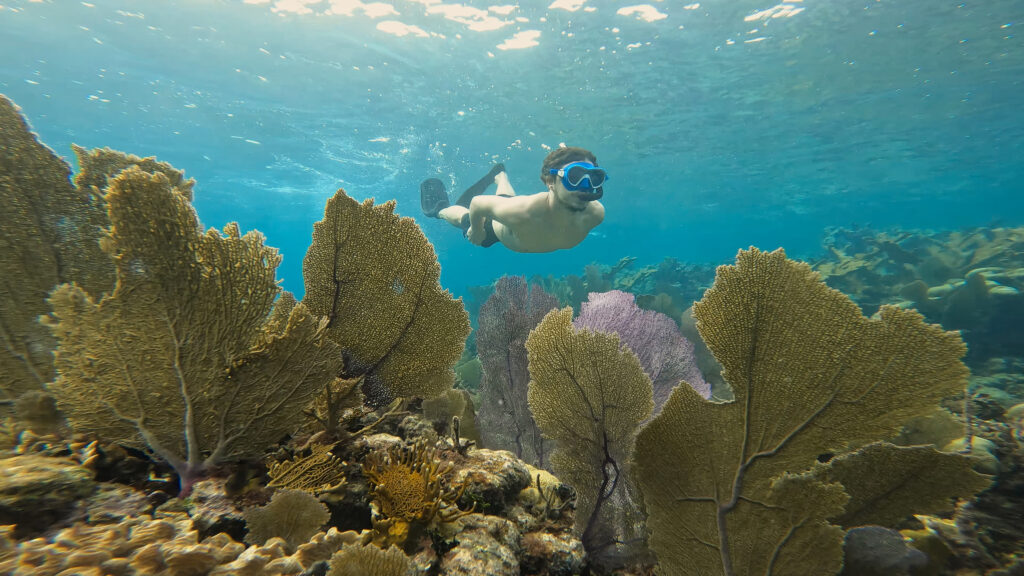Think back to 2020—hospital visits rose as COVID cases climbed, borders closed, businesses and schools shut down, and people panicked. The world we once knew spun upside down in a matter of days. And like so many, ocean conservation organizations, which depend highly on tourism revenue, suddenly faced unprecedented challenges as they worked to protect some of the planet’s most important ecosystems.
Fast forward two and a half years. The pandemic still lingers, but our local partners are thriving and conservation programs have stayed afloat—a truly remarkable accomplishment for coastal communities that watched their economies crumble overnight.
In collaboration with MAR Fund and thanks to a generous donation, we are so proud to have supported many of these tourism-dependent organizations during the pandemic and are thrilled to celebrate what they’ve accomplished. Two local partners worth highlighting are the Roatan Marine Park (RMP) and Turneffe Atoll Sustainability Association (TASA), who utilized CORAL and MAR Fund’s financial support in creative ways to keep their programs running, staff on the ground, and marine ecosystems protected. Let’s take a closer look at how these organizations found success during the COVID-19 pandemic:
RMP Empowered Patrol Rangers to Tackle Illegal Fishing in Roatan, Honduras

Illegal fishing is a constant battle in marine protected areas, including the Bay Islands National Marine Park, which is co-managed by the RMP. Without patrol rangers patrolling the waters, vibrant fish populations will diminish and coral reef ecosystems could be impacted.
When COVID hit in 2020 and tourism revenue disappeared, the RMP prioritized their control and surveillance program and acted quickly to allow patrol rangers to stay on the water full-time, with non-patrol staff agreeing to temporarily cut their hours. In addition, the RMP found new sources of revenue to make up for the loss of tourism by ramping up their online presence and focusing on digital marketing and fundraising. It turned out to be a smart move—as the island of Roatan saw a 150% increase in illegal fishing in nearby coral reefs that year.
According to Francis Leán, the executive director for the RMP, the team was successfully able to increase the number of patrol boats on the water, in order to keep up with the surge in illegal fishing. “The work of our patrol rangers is vital,” says Leán. “If it wasn’t for them, the coral reef wouldn’t be what it is today.” Today, five boats continue to monitor the protected area. The patrol rangers, alongside the Honduran navy, have confiscated and recorded a total of 905 illegal fishing items since 2020, ultimately improving the health of Roatan’s coral reef ecosystems.
TASA Implemented a New Business Plan to Manage Belize’s Marine Protected Area

Meanwhile, during the pandemic, TASA focused on developing a business plan to support the effective management of the Turneffe Atoll Marine Reserve, which boasts 342,000 acres of marine managed space within the Mesoamerican reef in Belize.
MAR Fund helped fund this plan, through the Belize Marine Fund and the MPA Emergency Funds Project that was developed with CORAL. The business plan was created by TASA and Blue Finance and puts emphasis on securing predictable sources of unrestricted funds to manage the reserve. According to Valdemar Andrade, executive director at TASA, oftentimes marine protected areas rely on short-term grants, which do not always secure long-term sustainability of an area’s conservation actions and the teams that drive these programs. By putting more emphasis on generating predictable, unrestricted funds, TASA is gaining financial autonomy to successfully manage the atoll long-term.
TASA’s strategy has allowed their team to focus on developing tourism infrastructure, designing a citizen science program, purchasing equipment to work with the fishing community, and much more. “My vision is to make the reserve a model marine reserve for Belize, where users take an active role in the management and decision-making of the reserve based on information received from stakeholders and science,” says Andrade.

By supporting CORAL, you are also supporting our dedicated partners, local communities, and alliances across the globe. Together, we have found success working directly with organizations like RMP and TASA, helping ensure they have the support necessary to carry out vital conservation programs dedicated to protecting ocean environments.
